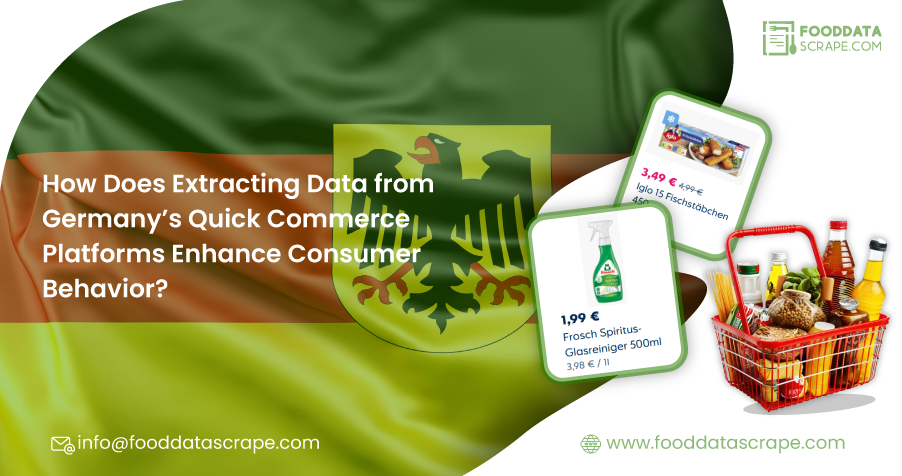Introduction
The quick commerce sector has experienced rapid growth in Germany based on the rapid rise in fast and efficient delivery services. There is a heightened concern for convenient service among people. Platforms through which groceries, pharmaceuticals, and other commodities can be rapidly delivered have integrated into the digital economy. In return, it has made ample data, benefiting businesses, researchers, and analysts. Companies can understand market trends, consumer behavior, and demand patterns by using Germany Quick Commerce Data Extraction. With the ability to Analyze Quick Commerce Trends in Germany, the business can make informed decisions, which will keep them competitive in a fast-moving market. It is also possible to Extract Data from German Quick Commerce Apps that provide real-time insights into product availability, pricing strategies, and delivery times for businesses to optimize their operations. This data is crucial for developing targeted strategies and enhancing customer experiences in the evolving Q-Commerce landscape.
The Rise of Quick Commerce in Germany
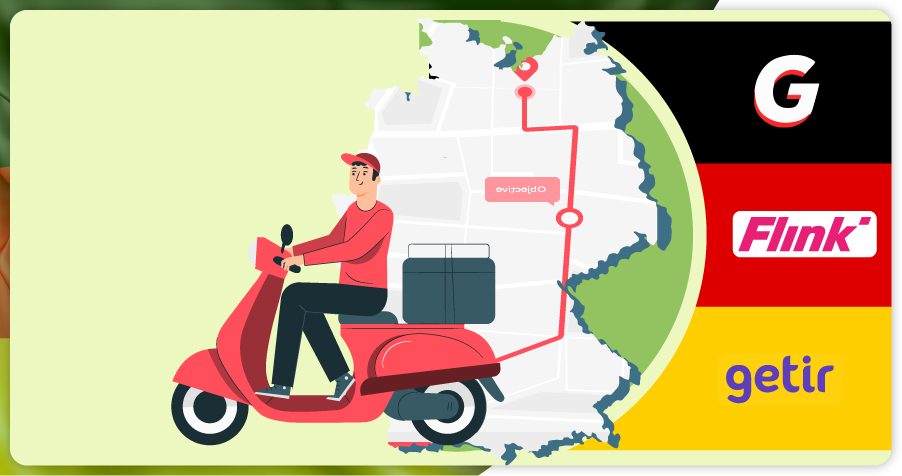
Quick commerce refers to the rapid delivery of goods, often within an hour, making it distinct from traditional e-commerce, where the delivery timeline could span several days. Germany has become a hotspot for Q-Commerce with its robust economy, well-developed infrastructure, and tech-savvy population. Leading platforms like Gorillas, Flink, and Getir are revolutionizing how goods are delivered to consumers, offering everything from groceries and electronics to personal care items. The core values of Q-Commerce are speed and convenience things, which are essential drivers for consumers looking to simplify their daily routine.
These platforms, particularly in the urban cities of Berlin, Munich, and Hamburg, have created vast amounts of data. Data regarding real-time customer purchasing behaviors, delivery times, and inventory management help improve operational efficiency and create valuable business insights when adequately analyzed. Companies can Scrape Quick Commerce Platforms Data in Germany to get the trends of the consumers, patterns of delivery, and stock levels, thereby being ahead in the competition. Extract Data from Germany’s Fast Delivery Platforms to help businesses improve their strategies and optimize their supply chains. Through the power of data, platforms can Scrape Data from Quick Commerce Platforms to predict demand, personalize offers, and improve customer satisfaction.
Track Insights Effortlessly Using Quick Commerce Data Scraping from Food Data Scrape
Understanding the Power of Data in Quick Commerce
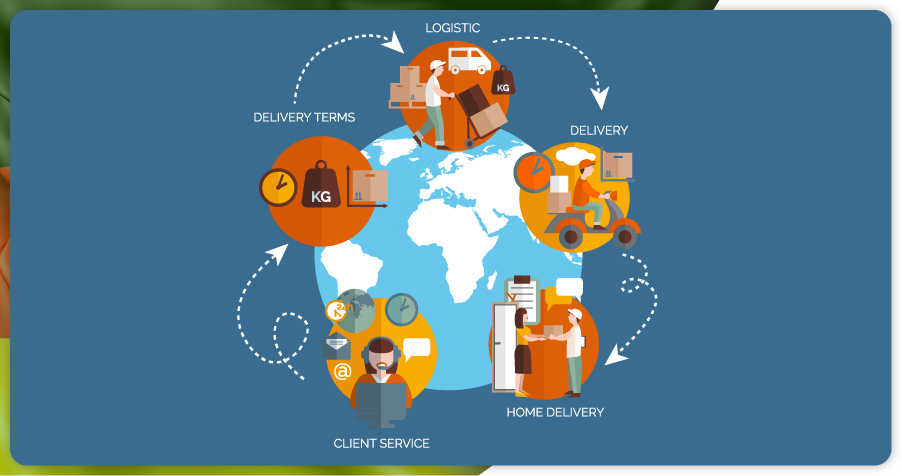
Data in the Q-Commerce space can be categorized into several different types, each providing valuable insights into specific areas of business operation. The first and most apparent is transactional data. This includes the details of each transaction made on the platform, such as:
- Product preferences: What are the most popular items? Which categories are seeing growth? Are there seasonal shifts in demand for certain products?
- Customer profiles: Information about the demographic breakdown of customers can help businesses target their products more effectively.
- Order frequency: How often do customers place orders, and is there any fluctuation based on time of day, day of the week, or specific promotions?
- Payment data: What payment methods are customers using, and does this influence purchasing patterns?
By analyzing this transactional data, quick commerce platforms can optimize their inventory and pricing strategies and gain deeper insights into their customer base, enabling them to provide more personalized service.
Next, there’s logistical data. This pertains to the operational side of the business, such as delivery times, courier performance, and supply chain management. Quick commerce platforms typically rely on a network of dark stores—small warehouses in cities that facilitate hyper-localized deliveries. Understanding how long it takes to fulfill an order, the efficiency of the delivery process, and potential bottlenecks can lead to significant operational improvements. For instance:
- Delivery speed and reliability: How quickly can an order be processed and delivered? Are there patterns in delivery times based on geographic location or time of day?
- Supply chain optimization: Are warehouses stocked efficiently? Are there discrepancies in product availability or shortages that delay orders?
Platforms can extract insights from logistics data to enhance operational efficiency, improve delivery performance, and reduce costs.
Consumer Behavior Insights from Quick Commerce Data
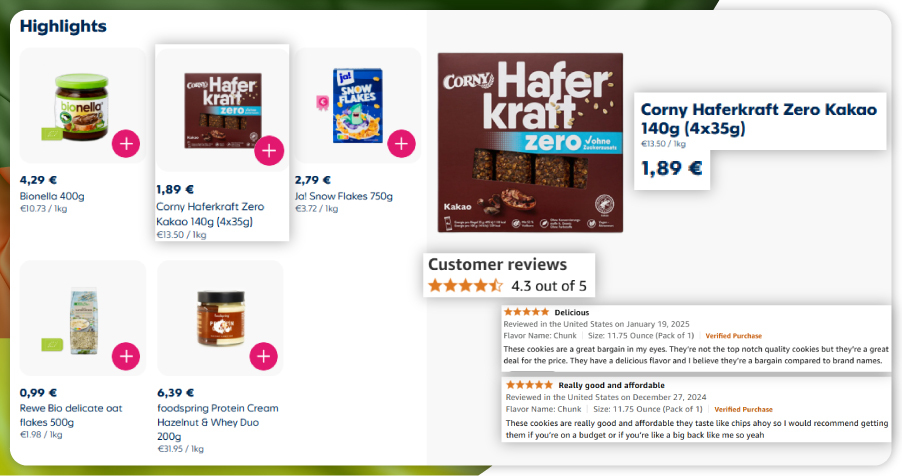
Consumer behavior is a treasure trove of insights for businesses in the Q-Commerce sector. Germany’s quick commerce platforms are uniquely positioned to provide detailed, granular data on how consumers interact with their offerings. By analyzing user behavior data, businesses can uncover critical patterns and trends that inform marketing and sales strategies. One key area of interest is purchase behavior analysis. Q-Commerce platforms can track what customers add to their shopping carts, what they purchase most frequently, and what items they abandon. This data provides insights into Grocery Pricing Data Intelligence, helping businesses optimize their pricing strategies and enhance product offerings based on consumer preferences.
- Product affinity: Which products are commonly bought together? For instance, targeted marketing could offer bundled deals if customers frequently purchase snacks and drinks.
- Peak shopping times: When are customers most likely to order, and how can platforms capitalize on these times through promotional activities or stock management?
- Impulsive purchasing behavior: Is there evidence that customers make spontaneous purchases, and if so, how can platforms further incentivize this buying behavior?
Understanding these aspects helps businesses optimize their offerings, improve product visibility, and forecast demand. Furthermore, analyzing customer retention rates and churn can highlight areas where businesses can improve their services to retain customers. If customers consistently abandon their carts or do not return for repeat purchases, it suggests an issue with the customer experience that needs to be addressed.
Real-Time Insights and Personalization
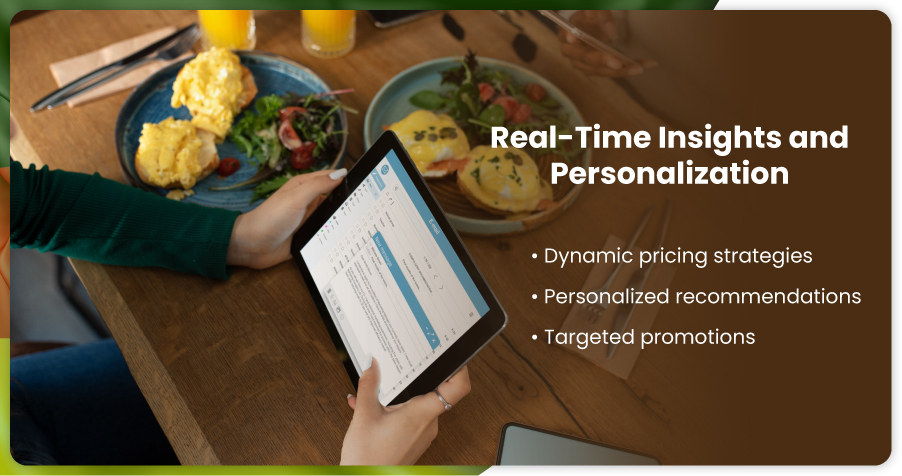
One of the unique advantages of Q-Commerce platforms is the ability to extract insights in real- time. By leveraging real-time data analytics, businesses can adapt quickly to changes in consumer behavior or external factors that may affect demand. For example:
- Dynamic pricing strategies: Based on real-time supply and demand, platforms can adjust prices to remain competitive and maximize revenue.
- Personalized recommendations: Platforms can offer tailored suggestions that enhance the customer experience and increase sales, using insights derived from previous purchases, customer preferences, and browsing history.
- Targeted promotions: By understanding customer behavior in real-time, businesses can push targeted promotions to specific user segments, enhancing the likelihood of conversion.
These real-time insights are compelling in competitive markets like Germany, where customers expect fast and personalized service. As the Q-Commerce landscape evolves, leveraging real- time data becomes increasingly important for staying ahead.
Data-Driven Decision Making and Strategic Planning

One of the main advantages of extracting insights from quick commerce platforms is the ability to make data-driven decisions that align with short-term operational goals and long-term strategic planning. For example, in product assortment and inventory management, platforms can use data to identify trends and adjust their stock levels accordingly.
If data reveals a surge in demand for a particular product or category, businesses can proactively adjust their procurement strategies to ensure they meet demand. Conversely, if a product is consistently underperforming, it may be wise to reduce its availability or reconsider pricing strategies.
Data can also inform market expansion strategies. Businesses can identify areas with high growth potential by analyzing customer demographics and purchasing behavior in specific cities or regions. For instance, if a particular product or service is seeing significant uptake in one region, it may make sense to increase marketing efforts or open additional warehouses in that area to accommodate growing demand.
Ethical Considerations and Data Privacy

As with all data-driven sectors, data collection and analysis in Germany’s quick commerce sector must be done responsibly. Consumer data, in particular, is subject to stringent privacy regulations, such as the General Data Protection Regulation (GDPR), which places high standards on data collection, storage, and usage. Businesses must ensure that they comply with these regulations, safeguarding consumer privacy and transparency in data usage. Additionally, as companies gather vast amounts of customer information, ethical concerns regarding data transparency and consumer consent become increasingly important. Customers must be fully informed about what data is being collected and how it will be used, ensuring they have control over their personal information. For companies involved in the quick commerce sector, Web Scraping Grocery Delivery Data should be conducted with a focus on privacy and compliance, ensuring that data extraction does not violate any legal standards. Implementing robust Grocery Delivery Scraping API Services can help businesses collect valuable insights while respecting consumer rights and data protection laws.
Conclusion
The data generated by Germany’s quick commerce platforms offers insights that can drive business optimization, enhance customer experience, and enable strategic decision-making. By leveraging data effectively, quick commerce platforms can adapt to consumer trends, optimize operations, and build stronger, more personalized customer relationships. Data will remain the key to unlocking new opportunities and maintaining a competitive edge as the sector evolves. Tools like a Grocery Price Dashboard can help platforms track price fluctuations in real time, providing valuable insights into market trends. Additionally, a Grocery Price Tracking Dashboard enables platforms to monitor competitor pricing and adjust their strategies to stay competitive.
Are you in need of high-class scraping services? Food Data Scrape should be your first point of call. We are undoubtedly the best in Food Data Aggregator and Mobile Grocery App Scraping service and we render impeccable data insights and analytics for strategic decision-making. With a legacy of excellence as our backbone, we help companies become data-driven, fueling their development. Please take advantage of our tailored solutions that will add value to your business. Contact us today to unlock the value of your data.






















































































